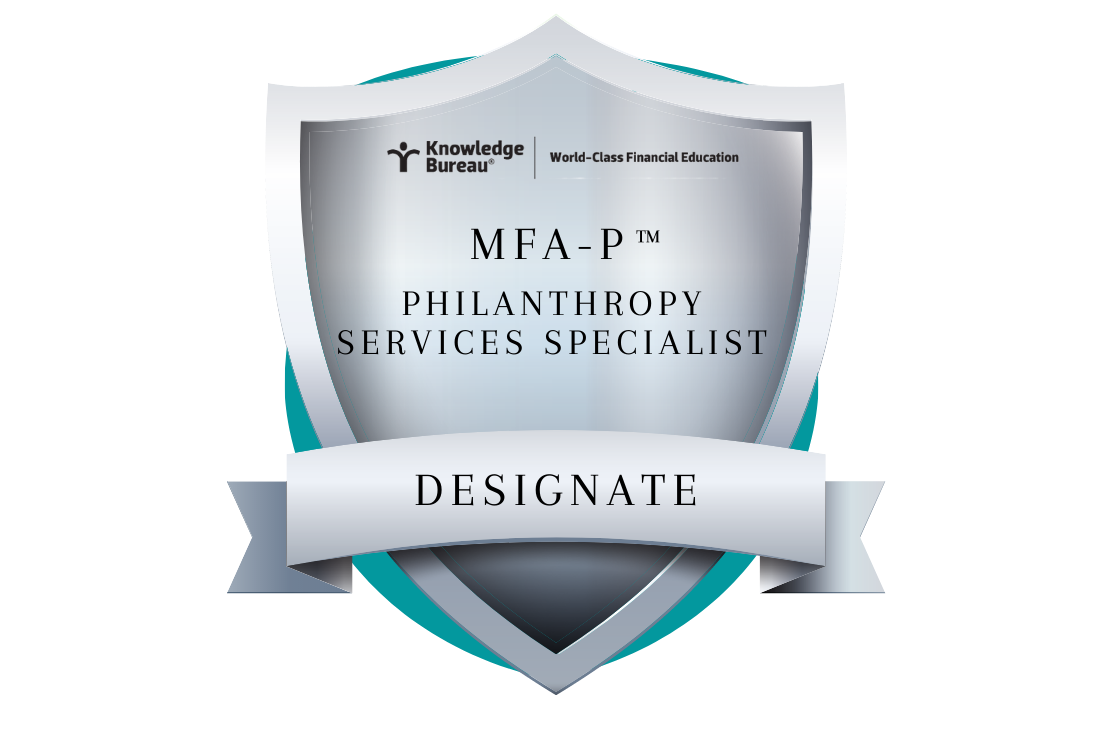Last updated: December 14 2022
TAX TIP: Make Charitable Giving a Multi-Stakeholder Event

Ian Wood, CFP, CIM, MFA-A
Why don’t more taxpayers – and charities – know more about gifting securities in kind? It’s an expeditious way to support your favorite charities during inflationary times. Donations for the purposes of 2022 tax credits will be accepted until December 30, but it’s important to leave settlement time for the transfer or securities.
This should get savvy tax and financial pros thinking about how to quickly help clients who want to give more before year end - especially as charities and donors struggle with diminishing resources. Consider the following:
Who is responsible for your clients to know about the benefits of gifting securities in-kind?
Spoiler-alert, it’s you. The advisor. It doesn’t matter what role you take in giving advice to your clients. If you’re reading this article, then you have an interest in this topic and you want to provide better advice. You also likely know that as an advisor, we can’t pass this responsibility onto the charities. Let’s discuss why.
When most of us think about charities, we think about the big ones in housing, health care, hunger, and environment. These are all wonderful charities, and many of them have a staff member responsible for planned giving. That person, or team, does take some responsibility to educate their donors on ways to give more effectively, and most do an amazing job (this does not, however, absolve you from your responsibility to explain the process and benefits to your clients).
However, most of Canada’s over 86,000 charities are much smaller. They are typically run by a few volunteers that may only stay in the organization for a couple of years before moving on.
If a small charity has a donor who wants to make a large donation - the charity might not be set up to receive it. In order to receive something like that directly, the charity would need to set up a brokerage account somewhere that can accept the security, assign trading and signing authority on the account, develop policies and procedures on what to do with  the donation and receipt the appropriate value for the gift. Also note: Some securities, like certain mutual funds or pooled products, are proprietary and can’t be transferred in-kind to an outside brokerage.
the donation and receipt the appropriate value for the gift. Also note: Some securities, like certain mutual funds or pooled products, are proprietary and can’t be transferred in-kind to an outside brokerage.
From the broker’s perspective, they receive little, if any, revenue from operating such an account. At the same time, the compliance regulations for the accounts can be onerous.
Some Issues Smaller Charities Face Without a Brokerage Account:
It may take weeks to get an account opened to receive the gift, assuming they can even find a broker willing to open an account. Once the account is opened, the charity then needs to decide on how to receipt the gift. Is it the market value at time of receipt, the cash proceeds after the sale, or something else?
What is a smaller charity to do?
If the charity wants to cash out the donation and receive the proceeds, my recommendation for smaller charities is to work with a donor-advised fund (DAF) provider who could facilitate the transaction. Things to consider: What is the minimum? What are the fees? How do those compare with other DAF providers?
If you would like to learn more about having a conversation about giving, identifying clients that aren’t giving effectively, the tax impact of gifting securities in-kind, and other charitable giving strategies, then I recommend considering the MFA-P program with Knowledge Bureau.
In addition, this topic was the subject of an informative presentation at DAC 2022, by Lindsay Sawyer-Faye and Paul Nazareth, still available in recorded format for those who missed the conference. (hotlink to DAC Course)
Bottom Line: Advisors in all fields need to take the initiative to have the conversation with our clients about charitable giving, especially this year. We need to have our researched recommendations ready to help facilitate the logistics of gifting securities in-kind to allow more tax-efficient gifts. By being tax-efficient, the client can give more to their desired charity with the same out-of-pocket expense.
©Knowledge Bureau, Inc. All rights Reserved
